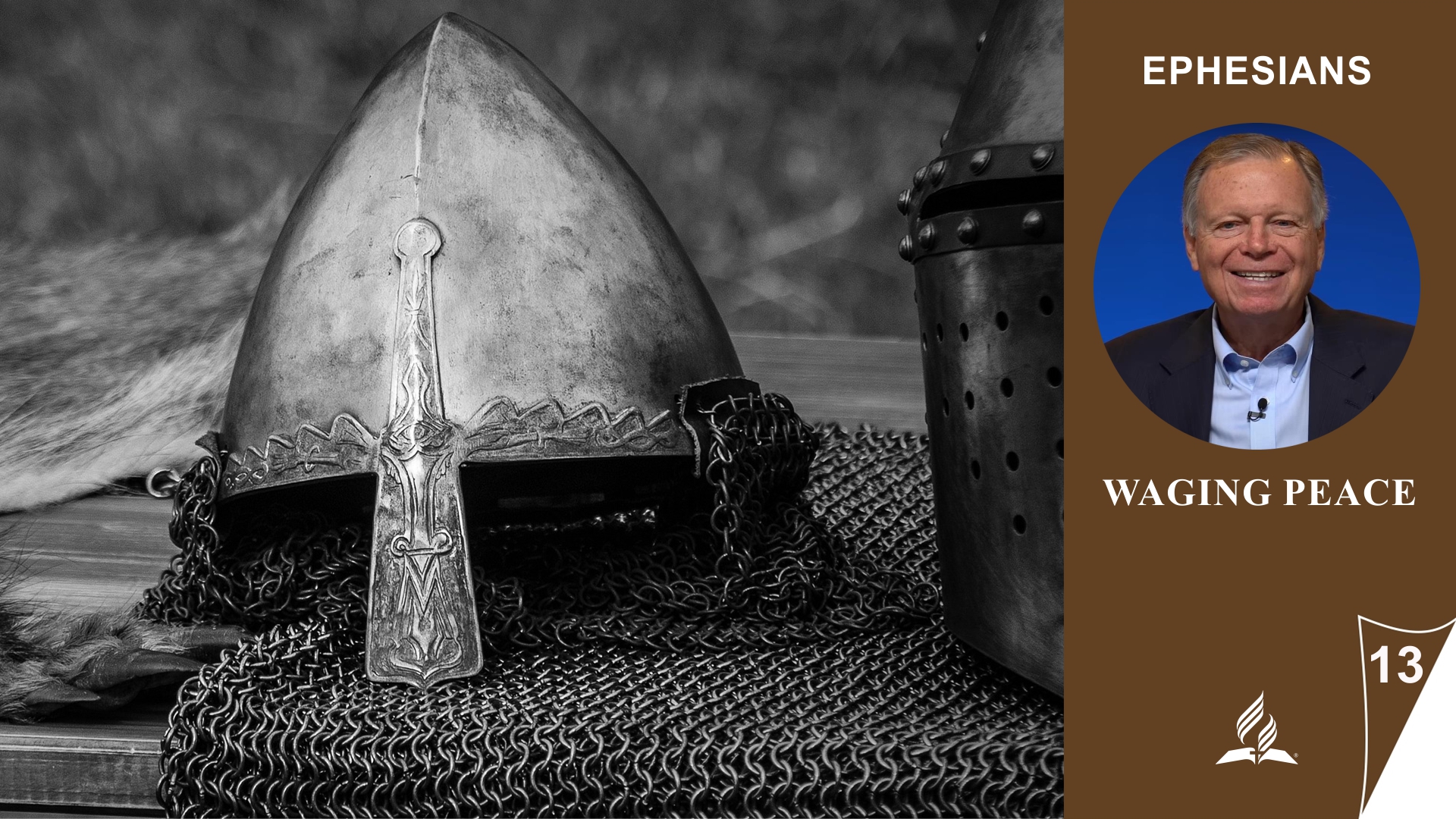
Series EPHESIANS with Pastor Mark Finley |
Lesson 13: Waging Peace |
Memory Text: Ephesians 6:16,17 – In all circumstances take up the shield of faith, with which you can extinguish all the flaming darts of the evil one; and take the helmet of salvation, and the sword of the Spirit, which is the word of God. |
Content:
13.1 The Church: A Unified Army
Paul emphasizes in Ephesians 6:10–20 not the fight of an individual believer against evil but rather the collective battle of the entire church against the powers of darkness. He portrays believers not as isolated fighters but as a united army equipped with a common armor, jointly engaging in the fight against evil. This underscores the importance of community and the collective efforts of believers in the spiritual battle.
13.2 Belt and Breastplate
Paul imagines believers initiating their fight against evil by equipping themselves with divine armor. The belt of truth, serving as the first line of defense, symbolizes the importance of adhering to God’s truth, while the breastplate of righteousness calls for acting justly and lovingly to protect oneself and others, aligning with references to righteousness, holiness, and truth in the Epistle to the Ephesians.
13.3 Shoes: The Church Wages Peace
Paul utilizes the detailed military metaphor in Ephesians 6:10-20 to highlight the importance of peace. He emphasizes peace eight times in the Epistle to the Ephesians, especially the peace established by Christ, which unites Jews and Gentiles into a “new humanity.” Paul urges believers not to combat enemies aggressively but to be peacemakers, spreading the gospel of peace and applying Christian virtues and practices to point to God’s plan of unity in Christ.
13.4 Shield, Helmet, and Sword
The armament of believers, as described by Paul in Ephesians 6:16-17, refers to the ongoing engagement in the cosmic battle. The “shield of faith” aims to extinguish fiery attacks by standing in trust in God’s protection and guidance. The “helmet of salvation” symbolizes present redemption in Christ and encourages reliance on His superior power, while the “sword of the Spirit” – the Word of God – is the central weapon to combat evil and rely on the promises of the Gospel.
13.5 Practicing Battlefield Prayer
Paul’s call to prayer in Ephesians 6:18–20 is a significant conclusion to his call to battle, urging believers not only to pray for all saints but also for himself as a prisoner to boldly proclaim the Word of God. This call underscores the importance of prayer as an integral part of the spiritual battle.
The fervent and persistent prayer for all saints emphasizes the church’s dependence on God’s help in the fight against evil. Similarly, Paul’s plea for himself highlights the need to seek God’s guidance and wisdom to powerfully and aptly proclaim the Gospel.
The multitude of prayer calls in the New Testament, as in Luke 18, Philippians 4, Colossians 4, and 1 Thessalonians 5, emphasizes the significance of earnest and enduring prayer. This is evident in Paul’s military metaphor as a response to the real spiritual battle and the necessity to rely on God’s promises of strength and victory.
(Visited 89 times, 1 visits today)




















